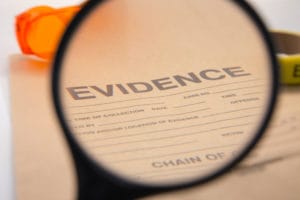The Right to Evidence Disclosure in Criminal Discovery
 In the same way that laws and penalties govern our people, there are rules in place that need to be adhered to once someone commits a crime. The justice system has procedures in place with rules that govern how to decide if an accused is guilty or not.
In the same way that laws and penalties govern our people, there are rules in place that need to be adhered to once someone commits a crime. The justice system has procedures in place with rules that govern how to decide if an accused is guilty or not.
One of the rules is that a person who has been formally accused of a crime is entitled to certain kinds of evidence and information. This material is known as discovery and the defendant has the right to receive it before trial. It’s important to note that discovery is ongoing, so the prosecution always has the duty to hand it over even after the trial has begun.
Discovery Types
Discovery material can come in a variety of forms. One common piece of discovery is a police report. A police report is often the first item of discovery that a criminal defense attorney will receive.
It typically contains the names of any victims and witnesses as well as any statements they may have made. It will also have observations from the police officer and other important information regarding the incident.
Another type of discovery can be recordings of any police interviews of victims, defendants or witnesses. Photographs of alleged crime scenes can also be material in criminal discovery.
Records are another example of discovery, such as police personnel records, a medical record relating to injuries and any criminal records of witnesses.
Under the Constitution, it’s required that the prosecution disclose exculpatory evidence within its possession or control to the defense. Exculpatory evidence is evidence that tends to contradict the defendant’s guilt or supports a lesser punishment. It’s usually enough that the evidence provides significant aid to the defendant’s case.
Defense attorneys typically submit requests for discovery, specifically asking for the aforementioned evidence. Not turning over this kind of evidence — intentional or not — would mean the government is in violation of the law.
A criminal defense attorney with experience understands the complexities that come with a criminal case. Hiring the right one will prove helpful for you and your case.
NJ Attorney Handles All Types of Criminal Cases
If you’re facing criminal charges in New Jersey, don’t hesitate to contact John W. Tumelty. He will work tirelessly to protect your rights and defend against your charges. Fill out the online contact form to see what he can do for you.
The articles on this blog are for informative purposes only and are no substitute for legal advice or an attorney-client relationship. If you are seeking legal advice, please contact our law firm directly.










